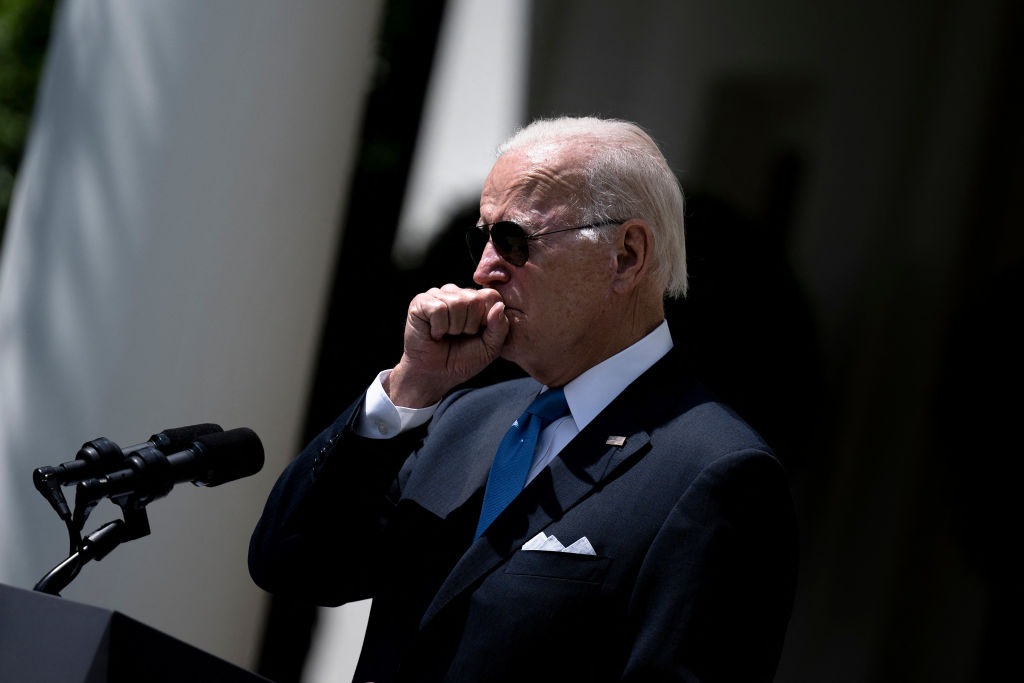When a long-silent former president finally speaks out, the public listens. So do foreign leaders, especially when the former president is closely tied to the current one. That’s why Barack Obama’s comments on the war in Gaza attracted attention.
Anyone who remembers President Obama’s foreign policy knew what to expect: criticism of Israel and a delicate dance around Iran’s malign behavior. In fact, he did not mention Iran at all. He totally ignored their role. His audience expected him to add a few words of moral self-righteousness, warning Israel about future civilian casualties, as if Israeli Defense Forces hadn’t taken enormous and costly steps to avoid them. He should have praised the IDF and contrasted their behavior with that of Hamas, which deliberately hides behind civilians and then lies about innocent deaths. He didn’t. Obama’s speech recapitulates his administration’s policies. Unfortunately, those policies didn’t work.
The former president’s comments are important because his aides populate the Biden administration and have continued his policies in the Middle East. The failure of those policies hasn’t prompted any self-reflection or significant policy changes. It’s time they do.
It’s possible, of course, that Biden will eventually reconsider as the full horror of Hamas’s attack and Iran’s backing for it sinks in. So far, however, there’s been no change. To quote an old English comedy routine, “We have learned from our mistakes and can repeat them exactly.”
Why did Obama finally break his silence? Mostly to wag a finger at Israel, as he has done so often. As president, he didn’t drop America’s basic partnership with the Jewish state, but he continually expressed his public disagreement with their policies, used American leverage to alter them, intervened to affect a democratic election there and offered broad support to global, anti-Western movements, including those directed at Israel.
Those stances produced considerable friction and controversy in the bilateral relationship. Israel’s leaders and their people have not forgotten them. If they listen to the former president now, it is not because they think he is a close friend or has deep insights. It’s because they worry Joe Biden and his team might follow in his suggestions, as they have so many times.
Despite this continuity between Obama and Biden, there is at least one important difference over Israel. Biden, unlike Obama, has not publicly lacerated Israel over their disagreements.
We still don’t know what direct role, if any, the former president has played in the Biden administration’s policies at home and abroad. The principals have been tight-lipped and Washington journalists have ignored the issue. But we do know that Obama is the first ex-president to continue living in Washington. His goal was not to reap the rich rewards of a high-paid lobbyist, as so many retired politicians do. He made his fortune from Hollywood, expensive speeches and books. Why, then, did he stay in a city where he had never lived before? The logical conclusion is he remained so he could keep a hand in Biden administration’s policymaking. That wouldn’t be difficult since most of Biden’s top officials worked for him. All Biden’s foreign policy people did.
Given this continuity, it’s not surprising that the Biden administration has repeated almost all Obama’s foreign policies and doubled down on some, including Iran.
The most important difference in their foreign policies is over Ukraine. President Obama laid the groundwork for the current war by doing nothing when Russia invaded in 2014, seized Crimea and took large swaths of eastern Ukraine. Vice President Joe Biden was in charge of Ukraine policy at the time and bears a heavy responsibility for Washington’s inaction and its consequences.
American lassitude sent the Kremlin a clear message: Biden was unlikely to act if Russia invaded Ukraine during his administration. That message was reinforced in 2021, when the Biden administration did almost nothing as Russia built up military forces on Ukraine’s border. That inaction is one reason deterrence failed in February 2022. The other reason was the lesson Russia drew from the Biden administration’s withdrawal from Afghanistan. They saw weakness, incompetence and bad judgment.
Biden’s inability to project a credible deterrent threat was on full display as the invasion of Ukraine loomed. The US did little to counter the Russian build-up, fearing the invader would win easily and capture any weapons the US sent to stop them. (The administration learned an important lesson from that mistake. They are sending multiple aircraft carriers to deter Iran in the Israel-Gaza war.)
The administration’s blunders before the 2022 Russian invasion culminated when President Biden notoriously advised Ukraine’s leader to leave the country. Volodymyr Zelensky didn’t take that advice. His famous reply was, “I need ammunition, not a ride.” Zelensky’s bold response galvanized his country and rallied its supporters in the US and Europe.
The ammunition came slowly and fitfully, but it did come. So did diplomatic support for Ukraine’s resistance. Even so, Biden has not given Ukraine the weapons to win. He hasn’t even declared he wants them to win. He has only said he opposes a Russian victory, a far different matter. The US has provided enough weapons to prevent Putin’s victory and done a superb job marshaling NATO allies for a combined effort.
While the Biden administration eventually departed from Obama’s policies in Ukraine, it has followed them faithfully in the Middle East. Both administrations appeased Iran and edged away from America’s regional allies, who staunchly opposed the Iranian regime.
The Biden-Obama policy represents a clear choice. President Trump made a very different one when he imposed a financial stranglehold on Tehran and strongly supported Iran’s adversaries. The financial pinch made it difficult for the mullahs to fund their terrorist proxies and continue their aggressive bid for regional dominance.
Trump’s tough policies, together with the threat from Iran, led to the Abraham Accords and deeper ties between Israel and its Arab-Muslim neighbors. The sanctions drained Iran’s foreign currency reserves and limited their ability to fund terrorist proxies. The huge, unanswered question was whether Trump’s policies would have prevented Iran from acquiring nuclear weapons.
The Obama policy, by contrast, was to “play nice” with Iran. The indelible image of that policy was a night-time delivery of pallets of cash to that regime. Biden has continued the same broad policy, hoping to fold Iran into what they call an “integrated Middle East.” The administration never utters the words “Abraham Accords.”
Biden’s utopian dream died in early October in an unspeakable bloodbath, launched by Hamas with Iranian weapons, funding and training. The dream was shattered by Hamas’s beheadings, Hezbollah’s missiles and antisemitic street demonstrations across the Middle East, Europe and the US. Tehran is the chief beneficiary of this tumult since it blocks Saudi Arabia from normalizing relations with Israel. That was Iran’s goal, and they have succeeded, at least for now.
The looming question for the Biden administration is whether it will change course now that its old policy has failed. They have already inched toward change with public statements, like one on Monday that Iran is “actively facilitating” rocket and drone attacks by their proxy groups on US military bases in Iraq and Syria. The deaths of American soldiers from the attacks would mark an inflection point. So far, thankfully, none have been killed.
White House statements holding Iran responsible for its proxies’ actions and its decision to dispatch carrier fighter groups to the region could be signs that Biden is doing more than responding to immediate challenges. He could be shifting America’s broader strategy. That won’t be easy. It is exceedingly rare for any administration to reverse its major foreign policies, not least because doing so is an admission the old ones failed.
One of the few presidents to do so was Jimmy Carter, who adopted a much tougher policy toward the Soviet Union after it invaded Afghanistan.
We’ll see if Joe Biden has the courage to change his Middle East policies or the insight to recognize the fundamental errors he and Obama made. When you wonder whether the president has the fortitude and foreign policy chops of Jimmy Carter, you know he’s in a world of hurt.


























Leave a Reply